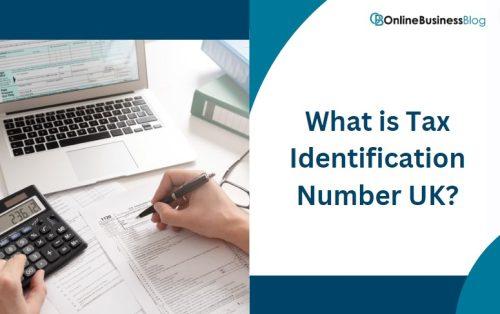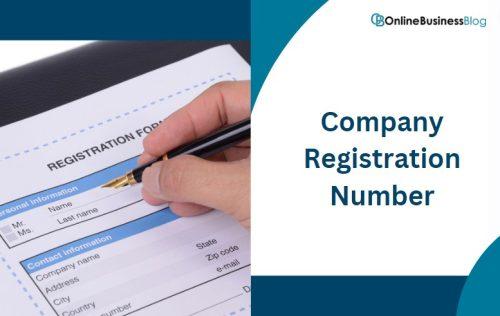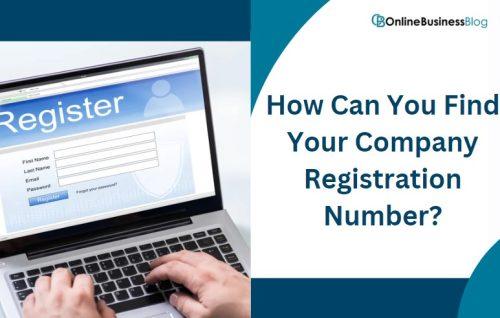Post Contents
Unlocking the mystery behind tax identification numbers in the UK may seem like delving into a complex labyrinth. But fear not, dear readers! In this blog post, we’ll unravel the enigma and shed light on what exactly a tax identification number (TIN) is in the UK context. Whether you’re an individual taxpayer or a business owner, understanding TINs is crucial for navigating your way through the intricate web of taxation and compliance. So grab your detective hats and join us as we embark on a journey to demystify TINs and their significance in the UK!
What is Tax Identification Number UK?

Tax identification numbers (TINs) play a vital role in the UK by identifying taxpayers and assisting with the smooth administration of their tax affairs. These unique identifiers are used for individuals as well as businesses, including limited companies. It’s important to note that the term “TIN” is quite broad and can encompass various types of identification numbers globally.
In the UK, taxpayer identification numbers are referred to as Unique Taxpayer Reference (UTR). They serve as a means to identify individuals for tax purposes. Additionally, social security numbers like the National Insurance Number and company reference numbers are also considered TINs in the UK. These different types of TINs have specific functions beyond taxation.
The structure and format of TINs vary depending on each country’s regulations and requirements. While some may consist solely of numerical digits, others may incorporate letters into their composition. One key aspect remains consistent: every Tax Identification Number is unique, ensuring it accurately identifies an individual or business entity.
So whether you’re an individual taxpayer or managing a company’s tax obligations, understanding your specific TIN is crucial for complying with legal requirements and streamlining tax-related processes. By having this distinct identifier at hand, you can navigate through national or international taxation matters smoothly while staying on top of your fiscal responsibilities without missing a beat!
Are TINs Used by UK Companies?
TINs, or Tax Identification Numbers, may not be widely used in the UK. However, when it comes to dealing with foreign businesses or national authorities in countries like the United States and EU member states, TINs may be referenced. In some cases, UK companies may be required to provide their TINs in order to conduct business abroad.
There are two main types of unique identifying numbers for companies in the UK: Unique Taxpayer Reference (UTR) and Company Registration Number (CRN). While a UTR is primarily used for taxation purposes and can be considered similar to a Tax ID Number, the CRN is also important for the official identification of a company.
Every company registered in the UK automatically receives a UTR from HMRC upon incorporation. This 10-digit number is specifically used for Corporation Tax matters. The UTR must be provided when corresponding with HMRC, submitting forms or annual accounts, as well as making Corporation Tax payments.
The importance of both the UTR and CRN cannot be overstated as they are vital for regular company administration tasks such as filing annual reports. These numbers play integral roles within different contexts related to taxation and formal identification requirements.
Unique Tax Reference (UTR)

The Unique Tax Reference (UTR) is an essential identification number used by both companies and individuals in the UK for tax purposes. While we have already discussed the UTR in relation to company dealings with HMRC, it is equally important for individual tax matters.
When a company director needs to fill out a self-assessment tax return, they will be assigned a separate UTR number specifically for this purpose. This unique 10-digit number distinguishes their individual tax account from their corporate one and ensures that all personal tax matters are properly addressed.
If you have recently formed a company and need to register for tax, you will also be issued a UTR. This alphanumeric code typically consists of ten digits, sometimes followed by the letter “K.” It is automatically assigned when you register for Self-Assessment and serves as your lifelong identifier in all future interactions with HMRC regarding your personal taxes.
The UTR plays a crucial role in maintaining accurate records of your income, deductions, and payments throughout your life as an individual taxpayer. It helps streamline the process of filing self-assessment returns each year and ensures that you meet your tax obligations effectively.
Remember that while the UTR may seem like just another series of numbers and letters, its significance cannot be understated. It represents your unique identity within the UK’s taxation system – so keep it safe!
When Will You Need to Use the Company’s UTR?
There are various occasions when a company’s Unique Taxpayer Reference (UTR) needs to be provided. It is required when registering a company for Corporation Tax, Value Added Tax (VAT), and Pay As You Earn (PAYE). These registrations ensure that the company is compliant with tax laws and regulations.
Furthermore, the UTR is necessary when making payments for Corporation Tax and VAT. It also needs to be provided when paying company employees, as well as filing annual Corporation Tax returns and VAT returns. This ensures that all tax obligations are met accurately and on time.
In addition to these instances, a company’s UTR must be used when informing HMRC of any changes to the business such as changes in ownership or structure. It is also required if there is a need to change the Corporation Tax accounting period or if the company becomes dormant.
The UTR must be included in all correspondence with HMRC regarding taxation matters. This ensures effective communication between the company and tax authorities throughout its operations.
Providing a company’s UTR on these different occasions helps maintain compliance with tax regulations and facilitates the smooth administration of tax affairs.
How Can You Find Your Unique Taxpayer Reference?
To find your Unique Taxpayer Reference (UTR), you can refer to any previous tax returns or documents from HMRC. These include notices to file a return and payment reminders, which should contain your UTR number. Additionally, you can log in to your online Corporation Tax account, where the UTR will be displayed.
If, for some reason, your Corporation Tax UTR number is completely lost, you have the option to request a copy from HMRC. To do so, you will need two pieces of information: the company registration number and the registered company name. Once requested successfully, the new UTR will be sent by post to your company’s registered address as shown on Companies House.
However, there are certain scenarios in which companies cannot request a copy of their Corporation Tax UTR. This includes situations where the company has been officially closed or dissolved; if it has been struck off and no longer appears on the public register of companies at Companies House; or if it has changed its business structure and is no longer a registered company.
It’s important to note that ensuring you have accurate records of your tax identification numbers can help streamline communication with HMRC and ensure smooth operations when dealing with taxation matters.
Company Registration Number

The company registration number (CRN) is a unique identifier issued by Companies House to verify the legal existence of a limited company. It consists of 8 characters, which can be either numbers or a combination of letters and numbers. The CRN is prominently displayed on the Certificate of Incorporation as well as all official correspondence from Companies House. Additionally, it can be found alongside various company details in the public register of companies.
While the CRN is not primarily used for taxation purposes, it may still be considered a Tax Identification Number as it needs to be quoted for official purposes, some of which may relate to tax matters.
It’s important to note that while similar in function, the CRN is not the same as a company’s Unique Taxpayer Reference (UTR). The UTR is used specifically for dealings with HMRC and submitting tax returns, whereas the CRN is required for correspondence and filing information with Companies House.
Both numbers play crucial roles in identifying and verifying businesses, whether it’s for taxation or other official purposes. Financial institutions and trading partners may also request these numbers when conducting business transactions.
When Will You Need to Use Your Company Registration Number?
When it comes to using your company registration number (CRN), there are several scenarios where you’ll need to provide this important identifier. A confirmation statement must be filed every year, and it must include the CRN to identify the company. Additionally, when filing company accounts annually or registering for Corporation Tax or VAT with HMRC, the CRN is required.
If you’re registering for PAYE or updating company details such as the registered office address or name with Companies House, the CRN is necessary. When dealing with shares and issuing share certificates, appointing or removing company directors or secretaries, opening a business bank account in your company’s name, applying for credit from financial institutions, or even displaying your information on business stationery like letterheads and websites – all these instances require providing the CRN.
It’s worth noting that when interacting with HMRC regarding Corporation Tax matters specifically, both Tax Identification Numbers (UTR and CRN) may be required. These various scenarios highlight just how integral your company registration number is in maintaining proper legal compliance and facilitating smooth operations within the UK business landscape.
How Can You Find Your Company Registration Number?

Finding your company registration number is essential for various official purposes. There are a few ways to locate it easily. You can find it on the Certificate of Incorporation or any official correspondence you have received from Companies House. These documents usually contain all the necessary information related to your company’s registration.
Another way to obtain your company registration number is by conducting a search on the public register at Companies House. This online platform allows you to access and verify important details about your company, including its unique identification number.
Additionally, if you’ve registered your company with 1st Formations, they offer an Online Company Manager facility that provides comprehensive information about your business, including the coveted registration number.
By utilizing these methods, locating your company registration number becomes a straightforward task. Having this number readily available is crucial as it will be required in various interactions with different organizations and authorities throughout the lifespan of your business.
National Insurance Number
A National Insurance Number is a crucial personal reference number that plays a significant role in the UK tax system. Comprising of 2 letters, 6 numbers, and a final letter, it serves as a unique identifier for individuals. This TIN connects individuals to their tax records, including National Insurance Contributions, social security benefits, tax payments, and even student loans.
Not only do company directors who pay themselves via PAYE require their National Insurance Number but it is also necessary for claiming benefits or applying for student loans. Moreover, various organizations rely on this TIN for official tax purposes such as HM Revenue and Customs (HMRC), employers processing PAYE systems, the Department for Work and Pensions administering state benefits, local councils handling Housing Benefit claims and Electoral Registration Officers verifying identities during voter registration.
Furthermore, entities like Student Loan Companies use the National Insurance Number to manage student loans while pension providers utilize it for personal or stakeholder pensions. Even financial service providers authorized to facilitate investment transactions like shares or bonds require this essential identification code.
The significance of the National Insurance Number cannot be understated as it ensures accurate record-keeping and efficient administration of an individual’s tax-related affairs across multiple sectors in the UK economy.
How Can You Find Your National Insurance Number?

Finding your National Insurance Number in the UK can be done through various avenues. One place to check is on your payslip or P60, as these documents often include this important identification number. Additionally, any official correspondence relating to tax, pensions, or benefit payments may also contain your National Insurance Number.
For those who prefer a digital approach, checking your relevant online personal tax account could provide the necessary information. However, if you’ve completely lost track of your National Insurance Number, there are steps you can take to retrieve it. One option is filling out form CA5403 and sending it to the indicated address listed on the form.
Alternatively, you can reach out to the National Insurance numbers helpline for assistance by answering a few questions about yourself.
If you’re someone who doesn’t currently possess a National Insurance Number but lives in England, Scotland, or Wales with the right to work in the UK – don’t worry! You still have options available. To obtain one of these essential TINs, you’ll need one of three qualifying forms: a British passport; settled or pre-settled status under the EU Settlement scheme; or a valid visa or biometric residence permit.
Remember that having access to and knowledge of your National Insurance Number is crucial for matters related to tax contributions and benefits within the UK system.
Conclusion
In wrapping up our discussion on tax identification numbers in the UK, it’s important to note that while there isn’t a specific tax identification number like in some other countries, there are two main numbers used for tax purposes: the Unique Taxpayer Reference (UTR) and the National Insurance Number (NINO).
The UTR is a 10-digit number issued to individuals and businesses for their tax accounts. It helps track payments and identify taxpayers when submitting returns or corresponding with HMRC. On the other hand, the NINO is a 9-digit number primarily used to track National Insurance contributions.
These numbers play vital roles in ensuring efficient administration of taxes and benefits across the UK. While they may not fit the traditional definition of a “tax identification number,” they serve similar purposes by uniquely identifying individuals and even small businesses within the system.
So, next time you come across TINs or hear about tax identification numbers in relation to UK companies, remember that they refer to either the UTR or NINO – both essential identifiers for taxation matters.
Remember, if you have any further questions about your specific situation or need assistance regarding these numbers, it’s always best to consult with a qualified professional who can provide personalized advice based on your circumstances.


